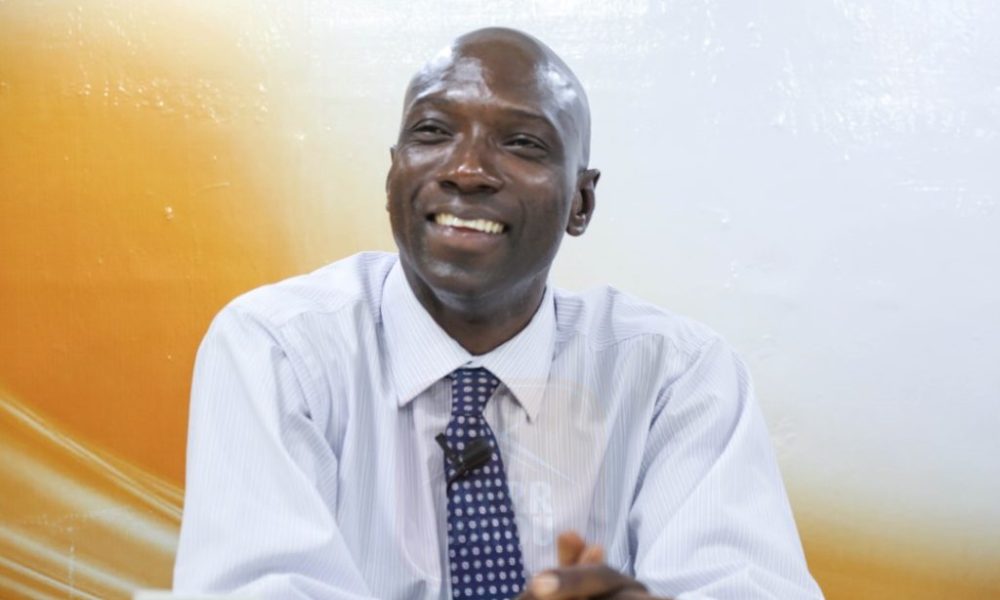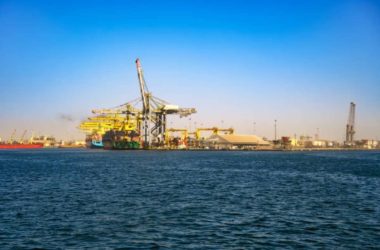As everyone in the country knows, The Gambia has been experiencing an acute shortage of cement recently. There was a period of weeks when almost no cement was available at all in the market. Cement prices have risen significantly, reaching D500 per 50kg in many locations across the country. This shortage occurred at a time when many individuals were rushing to complete their building projects before the arrival of the rainy season.
The real source of this cement crisis is no mystery. What we have been experiencing are the completely predictable outcomes of a misguided government decision to favour a single politically connected businessman at the expense of not only other Gambian entrepreneurs, but also the welfare of all Gambian consumers.
A. BACKGROUND : The 2-TIER IMPORT SYSTEM
Until recently, there were two broad groups of cement importers in The Gambia. One group imported cement in bulk and bagged it locally—these included Jah Oil, Gacem, and Salam (also imports clinker). The other group consisted of small-scale importers who brought already-bagged cement overland from Senegal. The market operated fairly well, with adequate cement supply and relatively stable prices.
Imported cement from Senegal that was already bagged cost less than imported bulk cement for two main reasons: transportation costs were lower, and imports from within ECOWAS avoided certain duties. The bulk importers sourced cement mostly from outside Africa – from Europe, the Middle East, and Asia – which entailed longer transit times and additional duties because the cement originated outside of ECOWAS.
B. THE GOVERNMENT’S MISGUIDED INTERVENTION
Due to lobbying from the bulk cement importers, the government increased the duty on bagged cement by D150 per bag. This duty increase drove all small-scale importers out of business by eliminating the price advantage they had over the bulk importers. No increase in duties was imposed on the importation of bulk cement. The government claimed at the time that this duty increase was necessary to protect the local cement industry. In other words, they claimed we had a local cement manufacturing industry that required protection. This claim is completely false. There is no cement manufacturing in The Gambia. All the bulk importers bring cement that is already manufactured elsewhere.
C. PREDICTABLE CONSEQUENCES
As I predicted, removing a large number of suppliers from a market and leaving only three (Gacem, Salam, and Jah Oil) would lead to several problems. The bulk suppliers import cement from distant markets where ships take weeks to deliver supplies, so they cannot respond as quickly to changes in market demand as the small-scale suppliers who sourced from Senegal, where it took only a few days between orders and deliveries.
There was also a risk that removing a large number of suppliers would cause shortages because there was no evidence that the three bulk suppliers had the capacity to meet local demand at peak periods. Furthermore, leaving the market to only three suppliers creates opportunities for collusion that can lead to price increases – something that would have been much harder when there were dozens of suppliers.
Not surprisingly, after the import duty hike drove the small-scale importers out of business, cement prices started to rise significantly in the country. To remove any doubt that the government was protecting mostly a single company at the expense of others, Jah Oil now imports cement from Senegal after having its competitors driven out of business. If the government’s stated reason for increasing import duties was to protect local industry, then why is Jah Oil allowed to import cement from Senegal?
ADDRESSING FALSE CLAIMS BY HAMIDOU JAH
Mr. Hamidou Jah, the owner of Jah Oil, recently made a rare appearance on Kerr Fatou to attempt to shed light on the cement situation. He made many claims that were false. I will briefly address some of his assertions:
1. FALSE ATTRIBUTION TO TRUMP TARIFFS
One point Mr. Jah made during his interview was that tariffs introduced by Donald Trump were partly to blame for the cement shortage in The Gambia. He specifically claimed that announced US tariffs of 46% on Vietnamese exports drove buyers to Egypt and Turkey, which raised prices in those markets.
There are several problems with this claim. Vietnam is one of many sources of US cement imports—not the main source as erroneously claimed by Mr. Jah. Turkey was already a far bigger source of cement for the US than Vietnam. Moreover, the 46% tariff that was announced in April 2025 was paused and never went into effect. This would explain why Vietnam’s cement exports did not actually fall, which would have had to happen if Mr. Jah’s claim were correct.
Besides, there was no reported shortage in Egypt or Turkey, which cannot explain the shortage we experienced in The Gambia. Even if it were true that the announcement of US tariffs increased prices in Turkey and Egypt, this should not necessarily have created shortages or acute price increases in The Gambia if the small-scale importers had not been driven out of the market.
2. FALSE CLAIM THAT 2025 WAS THE ONLY EPISODE OF SHORTAGE
Another blatantly false claim made by Mr. Jah was that the current shortage of cement is the only such episode in The Gambia. Does he think people have no memory? We also experienced a period of cement shortage last year. In fact, it happened shortly after the government imposed the duty on bagged cement from Senegal. Cement prices increased and stayed high. The recent shortage only increased them even further.
Import Duty Was Imposed for the Benefit of Gambians
Mr. Jah claimed that because he is a Gambian businessman, the imposition of import duties on bagged cement coming from Senegal was done to protect Gambians. This is false. The consumers of cement in The Gambia are ordinary Gambian citizens who bear the brunt of cement shortages and price increases. Neither the cement sold by Jah Oil nor by its competitors is manufactured inside The Gambia – it is all imported.
The government’s decision that drove other entrepreneurs out of business affected Gambians who pay taxes and employ large numbers of their fellow citizens. The welfare loss from experiencing cement shortages and paying far higher prices than necessary far exceeds whatever economic contributions are made by a single company such as Jah Oil. When building construction stops, many Gambians who would otherwise be employed in the construction sector are left jobless – we’re talking about thousands of people whose families’ standard of living is adversely affected. This is the part of the equation that Mr. Jah is not factoring into his self-serving claim. While it’s not surprising that Mr. Jah prioritizes his profits above all else, the rest of us are not oblivious to reality.
3. PURPORTED DIFFERENCE IN QUALITY
Mr. Jah claims that the cement he imports is of higher quality than other cement in the market. This is not supported by any evidence whatsoever. It is well known that cement has many quality grades, and this quality is determined by compressive strength after about a month of hardening. The most common grades are 33, 43, and 52. For most construction in The Gambia, grade 33 is sufficient. Construction projects that require significant load-bearing strength may need grade 43. And unless one is constructing a bridge, grade 52 is hardly ever necessary.

If you listen carefully, at no point did Mr. Jah make any specific claim about importing a particular grade different from his competitors—he simply insinuated. It’s also important to point out that Jah Oil is currently importing cement from Senegal, which is the same place where the competitors he drove out of business were sourcing from. If the quality of cement from Senegal were inferior to other sources, why would he import from there?
Even if Jah Oil’s cement were of higher quality, this advantage has been negated by the company’s practice of illegally under-filling cement bags by several kilograms. No one knows how long this dishonest practice had been going on. Individuals only decided to weigh the bags because many had noticed the weight difference for some time. For Mr. Jah to claim that this was a one-day error is hard to believe. The government certainly had no interest in investigating this malpractice because of their intent to protect his business. The government’s hand was forced only through private action.
4. IS BULK IMPORTATION BETTER THAN BAGGED IMPORTATION?
Mr. Jah attempted to give the impression that it is fundamentally better for the economy for a business to engage in bulk importation rather than importing in small quantities. This is false. The reason Jah Oil is able to import in bulk is simply because it is a much bigger business with deeper pockets and able to benefits from special loans arranged by the government. Small businesspeople who buy goods in small quantities, such as bagged cement, are relatively smaller and do not have the capital for such large orders. They certainly would if they could.
In any case, the amount of value that bulk cement importers add to the cement through bagging is a tiny percentage of its total value. I’m not claiming that bagging is trivial, but it should not be overhyped. When people talk about the need for the Gambian economy to move into manufacturing, we are thinking of something beyond bagging.
BOTTOM LINE
Jah Oil is an important player in the Gambian economy and is involved in numerous sectors. The company employs a large number of Gambians, generating incomes for those individuals and helping to support their families. Like other Gambian businesses, we should all wish the company success. Indeed, the government should provide support where it can, as long as it is done in the real interest of the Gambian economy.
However, any assistance to Jah Oil should not come at the expense of other Gambian businesses and consumers. It is possible to facilitate the success of any Gambian company without negatively affecting the economy as a whole. Unfortunately, this is not reflected in the actions of the current government in the cement market.





